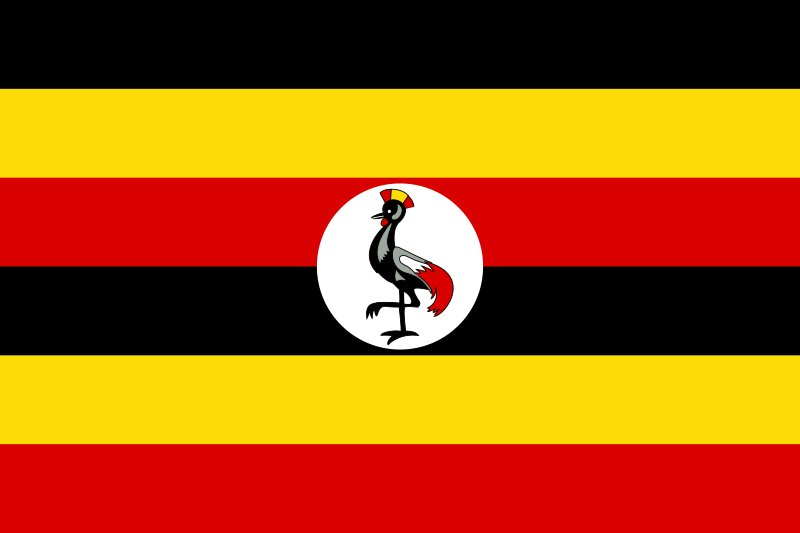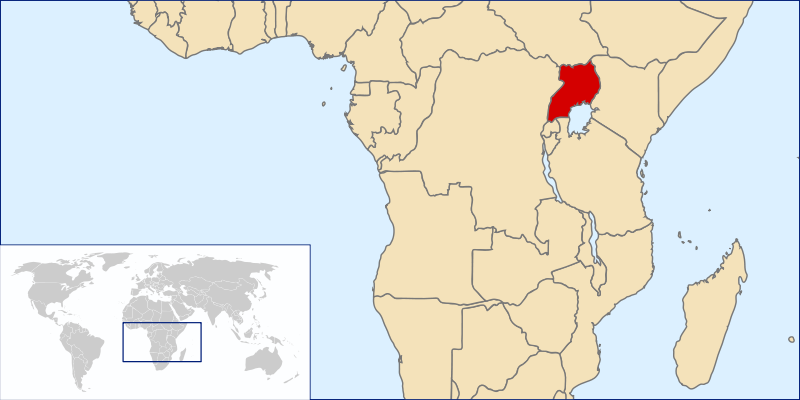 The Republic of Uganda (pronounced /juːˈɡændə/ yoo–GAN-də or /juːˈɡɑːndə/ yoo–GAHN-də) is a landlocked country in East Africa. It is bordered on the east by Kenya, on the north by Sudan, on the west by the Democratic Republic of the Congo, on the southwest by Rwanda, and on the south by Tanzania. The southern part of the country includes a substantial portion of Lake Victoria, which is also bordered by Kenya and Tanzania.
The Republic of Uganda (pronounced /juːˈɡændə/ yoo–GAN-də or /juːˈɡɑːndə/ yoo–GAHN-də) is a landlocked country in East Africa. It is bordered on the east by Kenya, on the north by Sudan, on the west by the Democratic Republic of the Congo, on the southwest by Rwanda, and on the south by Tanzania. The southern part of the country includes a substantial portion of Lake Victoria, which is also bordered by Kenya and Tanzania.
Uganda takes its name from the Buganda kingdom, which encompassed a portion of the south of the country including the capital Kampala.
The people of Uganda were hunter-gatherers until 1,700 to 2,300 years ago, when Bantu-speaking populations migrated to the southern parts of the country.
Uganda gained independence from Britain in 1962.
The official languages are English and Luganda although multiple other languages are spoken in the country.
It is a member of the African Union, the Commonwealth of Nations, Organisation of the Islamic Conference and East African Community.
For decades, Uganda’s economy suffered from devastating economic policies and instability, leaving Uganda as one of the world’s poorest countries. The country has commenced economic reforms and growth has been robust. In 2008, Uganda recorded 7% growth despite the global downturn and regional instability.
Uganda has substantial natural resources, including fertile soils, regular rainfall, and sizable mineral deposits of copper and cobalt. The country has largely untapped reserves of both crude oil and natural gas.
While agriculture used to account for 56% of the economy in 1986, with coffee as its main export, it has now been surpassed by the Services sector, which accounted for 52% of percent GDP in 2007. In the 1950s the British Colonial regime encouraged some 500,000 subsistence farmers to join co-operatives. Since 1986, the government (with the support of foreign countries and international agencies) has acted to rehabilitate an economy devastated during the regime of Idi Amin and subsequent civil war. Inflation ran at 240% in 1987 and 42% in June 1992, and was 5.1% in 2003.

Notes from Wikipedia








